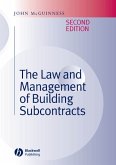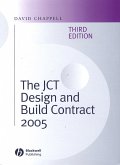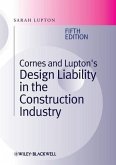Since this book was first published over ten years ago, collateral warranties have been used increasingly by funding institutions, building purchasers and tenants to create a contractual relationship between themselves and other parties involved in the project, whether architect, engineer, contractor or subcontractor. Indeed, collateral warranties are now being used to create primary contractual obligations. There have been some immensely important developments in the law relating to collateral warranties since the first edition. The Contracts (Rights of Third Parties) Act 1999 has introduced radical new developments into English contract law. The book now includes a completely new chapter on the legislation, which also looks at the potential practical uses of the Act on development projects. The House of Lords has handed down a number of key decisions recently on third party remedies and on the principles relating to damages on assignment (such as Linden Gardens, Panatown, Henderson v. Merrett Syndicates and White v. Jones). These and some 65 other new cases are considered in the new edition. Finally, a number of standard forms of warranty have been issued and these are now discussed, in particular the new JCT standard form of warranty for main contractors and subcontractors. This immensely important book was widely welcomed when it was first published. The new edition has been thoroughly updated and will continue to be the authoritative reference on the subject. "David Cornes and Richard Winward's book is a veritable mine of such information and is eminently readable" Construction News 16/05/02 "For those of you working in construction, managing building or indeed other contracts, you must have at least one authoritative source of advice and information. If this is your area of work, then this is your book" Building Engineer, July 2002
Dieser Download kann aus rechtlichen Gründen nur mit Rechnungsadresse in A, B, BG, CY, CZ, D, DK, EW, E, FIN, F, GR, HR, H, IRL, I, LT, L, LR, M, NL, PL, P, R, S, SLO, SK ausgeliefert werden.









